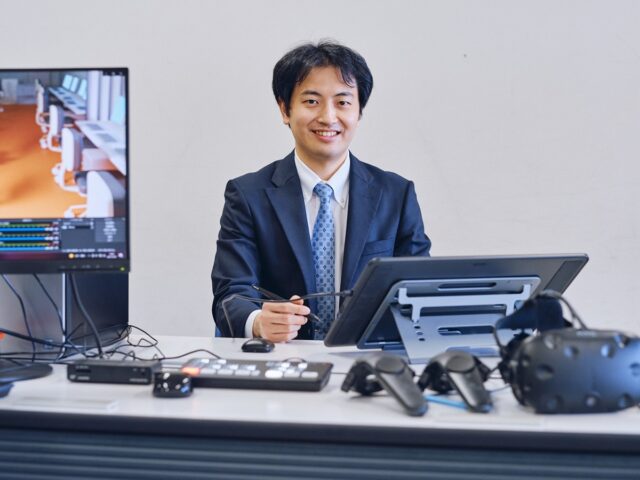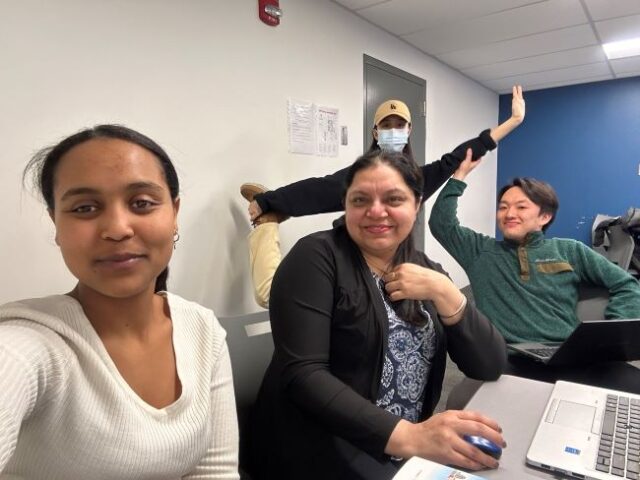President Hikota Oguchi of Edogawa University, who is promoting the vision of promoting internationalization, said, ``I want young people living in an age of globalization to be exposed to the wisdom of the world, to understand diverse ways of thinking and different cultures, and to collaborate with people around the world.'' In 2020, we will further develop existing overseas training programs and launch the Global Study Program (GSP), a study abroad support system that supports students who seriously want to go out into the world. It started in the year.
What students are asked about in Edogawa University's GSP is how serious they are. This is because they aim to earn course credits as a formal university study abroad program, rather than simply studying abroad.
The application requirement for GSP is to have an Eiken level 2 or higher qualification. If you utilize the English proficiency improvement program and meet certain conditions, you will be able to study abroad for 6 to 8 months. Under this system, 35 yen of first-year tuition and summer overseas training expenses are waived, and approximately 300 million yen of study abroad expenses (including tuition, round-trip airfare, and dormitory fees (meals included)) are exempted from repayment to partner universities. ) will be supported. In other words, it will be possible to study abroad with only the regular Edogawa University tuition fees.Furthermore, if you complete this program, 55 yen of tuition fees will be waived for half a year after returning to your home country, which is very attractive for students considering studying abroad. The content is as follows.
Associate Professor Toshikazu Yamaguchi of the Department of Information and Culture, Faculty of Media and Communication, who is in charge of GSP, said, ``The university hopes that this system will allow motivated students to avoid giving up on studying abroad for financial reasons, and that we will be able to support campuses with many students who have studied abroad. I want to continue to do so.''

We actually spoke to Yuki Furumiya (4th year, Department of Business Sociology, Faculty of Sociology), who studied abroad at the University of Winnipeg in Canada as the first GSP student.

``I looked for a university with the assumption that I would be studying abroad, and considering my own financial situation, I compared scholarships and study abroad support systems at each university, and decided to attend Edogawa University.To be honest, Without this system, I might not have been able to study abroad.
Ever since I was in high school, I have been interested in cultural exchange and cross-cultural comparison. This is because I found it difficult to understand the actions and ways of thinking of foreign friends I met in high school and Japanese friends who were born and raised in a foreign country. In order to understand what causes this, you have to know how the people think about things using English, in order to truly understand it. Of course, there are many opportunities to learn about it in Japan through various research and books, but I wanted to study abroad because I thought it was important to actually experience it and know it first-hand, rather than just on paper.
The application requirements for GSP are Eiken Grade 2 or higher, but I had a TEAP score of 225 when I enrolled. In the English proficiency improvement program, the first year is spent checking and sorting out basic grammar points, while the second year is focusing on improving vocabulary skills for the exam in order to clear the TOEFL score, which is a condition for studying abroad. Train your craft skills. I think the difficulty level has increased considerably since that class.
Due to the nature of the TOEFL test, it tests the English proficiency required for university studies, so it was very difficult to adapt to that, but in ``Academic Reading,'' I took material from English newspapers. The instructors also created various materials for me to read, and I also digested them. At the end of my second year, I spent about a month and a half reading a paper related to my major in the "English for Academic Purposes" class and giving a presentation on the content.
Thanks to this, I was able to study the basics of business with undergraduate students at the University of Winnipeg during the winter semester during the second half of my study abroad. In the classes at the University of Winnipeg, there were a lot of discussions and presentations in small groups, which I felt was quite different from classes in Japan, but the time I entered Edogawa University coincided with the coronavirus pandemic. , classes were held in the middle of nowhere, so it's difficult to make a simple comparison.
The lineup of students changes every semester, and in the fall and winter semesters that I took, especially in the winter semester, there were students from many different countries, and the differences between them were interesting. I thought I knew about the behavior from books and comparative culture classes, but it was a very valuable experience that made me realize, ``You won't understand until you see it.This is really different.'' was.
I wanted to study abroad and emulate the employees at the shopping mall, because when I saw them, they always seemed to enjoy their time at work, and when they talked to friends, they genuinely respected the other person's opinion. This is where it takes root. In Japan, I feel a little distanced from people I meet for the first time, but at the place I studied abroad, everyone was really friendly, and although I think there are cultural differences, there is no need to be stiff in such situations. I also learned that first impressions affect future relationships. I think it's because I was able to actually go abroad that I was able to appreciate the cultural differences.

Since studying abroad, I feel that I have grown more and more, and that is that I have become more comfortable speaking English. For example, it's great that I can now add my own arrangements, such as adding speed and rhythm, and then proceeding while watching the audience's reaction. Thanks to my improved English skills, which serve as a resource for me when reading news articles, I am now able to understand them in a variety of ways.
In my case, I obtained the TOEFL score at the end of my second year, which is a prerequisite for being sent to study abroad, but it was a little irregular, so I completed my job hunting in my third year and received a job offer before studying abroad. I will be joining the workforce in April, and I think I might be the first to raise my hand if my company expands overseas.
Being in an environment where Japanese common sense doesn't apply to you is a great experience. For example, when I looked at how cars were handled on a daily basis, I was surprised to find that all Canadian cars were beat up. When I returned to Japan, I remember feeling relieved when I saw the cars in the airport parking lot (lol). If you are thinking about studying abroad, I would like you to experience these differences first-hand, and I am sure you will be surprised and learn something from them."
From Mr. Furumiya's story, it seemed that his earnest desire to learn attracted support to make his wishes come true.
Wataru Hakamada, Director of the International Office of the Academic Affairs Department, said, ``GSP has just sent out its first batch of students, Mr. Furumiya.There are various requirements, but we are willing to respond flexibly and have a strong desire to learn and go out into the world. I would like to continue to improve my skills so that I can provide more study abroad opportunities to high-achieving students."

